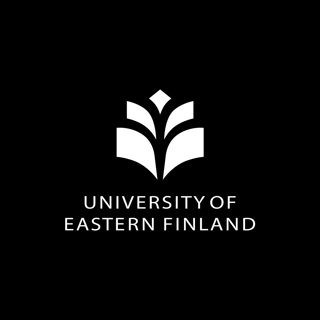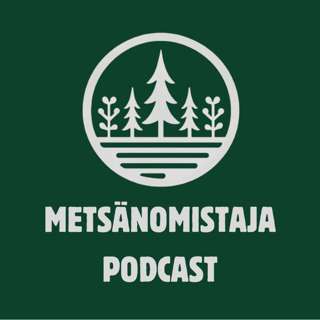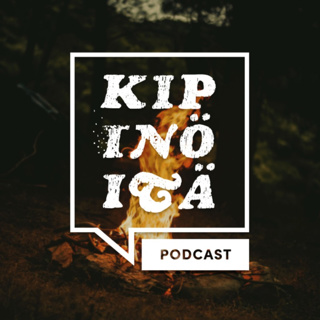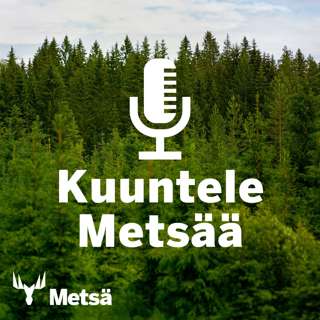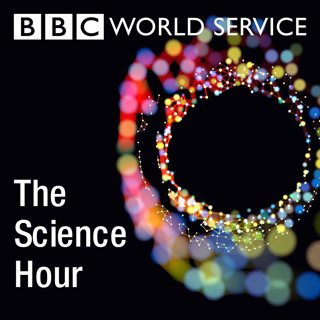
Malaria, origins and a potential new treatment
A variety of malarial parasites have existed amongst the great apes for millennia, we look at how one of them jumped species and why humans became its preferred host. And from Antarctica we hear about a potential new treatment for malaria found in a deep sea sponge. We also look at why improved monitoring is changing our perceptions of earthquakes and follow the story of an endangered Polynesian snail.What exactly is the relationship between mathematics and reality? That’s the impossibly difficult question we have been set this week by our listener Sergio in Peru. It’s one that’s been pondered by humans for millennia: the Greek philosopher Pythagoras believed “All is number”.Is maths a human construct to help us make sense of reality - a tool, a model, a language? Does maths create its own reality? Or is it reality itself?(Photo: A young gorilla. Credit: Hermes Images/AGF/Universal Images Group via Getty Images)
20 Loka 20191h 1min

From batteries to distant worlds
Nobel prizes this week went to a range of discoveries that you might be familiar with, in fact you might be using one of them right now – the lithium ion battery. The scientists credited with its Invention got the chemistry prize. And the tantalising prospect of life on other planets plays into the physics prize win.We see what salamanders have to offer in the treatment of arthritis.Human life expectancy has been increasing for decades. In many developed countries, we can now expect to live into our 80s, and it isn’t uncommon to live to 90 or even 100 years old. But eventually our bodies fail, old age is undoubtedly a clear indicator of approaching death. This fact annoyed 79 year old listener Bill, who emailed in to set us the task of seeking out the secrets to a longer, healthier life. Bill has a personal target to live to 200 years old, so can he do it?
13 Loka 201956min

Global climate inaction
This week’s IPCC report on the state of the world’s climate looks very much like their earlier reports on the subject. The document cautiously expresses a picture of a future with greater climate extremes. Activists are frustrated by the lack of action. We look at why the scientific message is often hampered by politics. Fish could provide micronutrients to the world poor, but as we’ll hear this would need a major shift in commercial fishing practices globally.Baby bottles from thousands of years ago suggest Neolithic people gave animal milk to their children.And when did the Sahara develop? New findings in deposits from volcanic islands provides some evidence.The number of vegans is on the rise in many parts of the world, with many people swearing by the health benefits of a plant-based lifestyle. But is a vegan diet really better for your health? Is there any evidence to show that vegans are likely to live longer? And what about the new, highly processed meat analogues becoming increasingly available in supermarkets and restaurants menus? They look, feel and taste just like meat products but what affect are they having on our health? To find out more, we talk to the experts and join listener Samantha in following a vegan diet.(Image: Greta Thunberg. Credit: AFP/Getty Image)
29 Syys 20191h 4min

South East Asia choking - again
Staying indoors might seem a good way to avoid air pollution, but scientists studying the fires in Indonesia have found there is little difference between the air quality in their hotel room and the atmosphere outside. Both levels are high enough to be considered dangerous for human health. To add to the problem, fires continue to burn underground in the peaty soil long after they were started. In the Arctic ice melt this summer has been particularly severe, however the picture in complicated by climatic conditions. A new mission to the region involving trapping a ship in ice over winter hopes to provide answers.Nearly 500 million of year ago the earth’s sky was darkened by a massive asteroid explosion, blotting out the sun. New data on this event may provide an insight into contemporary climate change.Sir Arthur Conan Doyle’s famous fictional detective is renowned for his feats of memory, his observational capacity, tireless energy and an almost supernatural ability to solve the most perplexing crimes from seemingly unconnected facts. But what does science have to say about the matter? We pit fact against fiction with a leading forensic expert, a sleep scientist, and we discover that most humans are able to train their brain to rival the memory capacity of Sherlock Holmes. And who wouldn’t want that?(Image: Researcher Mark Grovener from Kings College London, measures air quality in Indonesia. Credit Marlin Wooster KCL)
25 Syys 20191h 6min

Embryoids from stem cells
Scientists know very little about the first few days of the life of a human embryo, once it's been implanted in the womb. Yet this is when the majority of pregnancies fail. Professor Magdalena Zernika-Goetz at Cambridge University is a leader in the field of making 'model embryos' in both mice and humans. Model embryos until now have been grown in the lab from donated fertilised eggs, but these are hard to come by and governed by strict laws and ethical guidelines. Now researchers in the University of Michigan have used human pluripotent stem cell lines (originally isolated from embryos, but kept and nurtured as clumps of dividing cells in petri-dishes for many years) to make a model embryo that has shown signs of development and organisation in the crucial 7-10 day window. We discuss how helpful these will be to understanding crucial early stage pregnancies and as a tool to test drugs, treatments and disease processes. The ethical side of growing human embryos from stem cells is addressed by Stanford University ethicist Professor Hank Greely. Astronomers have detected water vapour in the atmosphere of a planet called K2-18b orbiting within the habitable zone of a distant star. The lead scientist, Professor Giovanna Tinetti of University College London, talks about the discovery and what she hopes to explore when a satellite telescope called ARIEL is launched by ESA in around a decade. The World Health Organization ranks migraines as the second most disabling neurological disorder in the world and in people under the age of 50, it is the single most disabling medical condition. With stats like that, it’s no wonder that so many listeners have got in touch wanting help with their headaches. Peter from Germany askes what happens in his brain when he’s got a migraine, whilst Nika from Germany has found that changing lifestyle has dramatically reduced hers but she’s not sure why. What’s the link between diet, exercise and migraines, Nika wonders? Meanwhile, Judy from USA wants to know if there’s a cure, as her son gets chronic migraines and she wants to know what the future looks like for him. We investigate some of the latest research in headache and migraine research to find some answers.(Photo: A set of five embryo-like structures in a microfluidic device developed in the lab of Jianping Fu. Image credit: Fu Lab, Michigan Engineering)
15 Syys 20191h

New evidence of nuclear reactor explosion
An isotopic fingerprint is reported of a nuclear explosion in Russia last month. Researchers ask people living in the area or nearby to send them samples of dust or soil before the radioactive clues therein decay beyond recognition. Also, a near miss between an ESA satellite and a SpaceX Starlink module in crowded near space strengthens the case for some sort of international Space Traffic Management treaty, whilst in the arctic circle, melting permafrost is disinterring the graves of long-dead whalers.Sociable, lively, outgoing people are highly valued in certain cultures - think of the stereotype of the hyper-confident American. And there’s even evidence that extroverts all over the world tend to be happier. But are the positive qualities that quieter types can bring to society being ignored or under-appreciated? And couldn’t introverts be just as happy as extroverts, if only they lived in a more accepting culture? We probe the links between happiness, personality and culture, and find out what makes introverts happy.(Photo:Tell-tale radioactive isotopes could still be in dust on cars near the site of the blast. Credit: Humonia/iStock / Getty Images Plus)
7 Syys 20191h 2min

Nanotube computer says hello
A computer processor made of carbon nanotubes is unveiled to the world. Also, the continuing quest for nuclear fusion energy, and the stats on crocodile attacks since the 1960s.Satellites have transformed our lives, giving us digital communications, navigation and observations of Earth, and even an artificial place to live above the atmosphere: The International Space Station. But, would more of these satellites and stations help us get back to the Moon, as well as further into the solar system? What else would astronauts need for living beyond Earth? We ask the engineers working on the possibilities – from communications satellites that could transform lunar missions to a brand new moon-orbiting space station: The Lunar Gateway. These technologies could help humans get back to the Moon, and perhaps one day to Mars, for hopefully reduced costs – but funding missions beyond our planet still isn’t going to be cheap. Why might we need deep space-based infrastructure, and how could it help humanity back here on Earth? (Photo: The world's first 16 bit microprocessor made of carbon nanotubes. Credit: Max Shulaker)
31 Elo 20191h 3min

Amazonian fires likely to worsen
As fires across the amazon basin continue to burn, we speak to the researchers watching from space and from the ground. Also, new pictures back from the surface of asteroid Ryugu thanks to Germany’s MASCOT lander, part of the Japanese Hyabusa2 mission, give insights into the clay from which the solar system was originally formed, and Greenland’s top geologist gives his valuation of his native island for prospective purchasers. Many of us struggle to motivate ourselves to carry out certain tasks, from hanging out the washing to writing a job application. How can we best motivate ourselves? And how can we avoid procrastination? Listener Moses in Uganda wants to find out. Anand Jagatia puts science to the test as he trains and participates in an open water swimming race which Marnie Chesterton has kindly volunteered him for.(Photo: Wildfires in Amazon rainforest. Credit: REUTERS/Ueslei Marcelino)
24 Elo 20191h 8min











